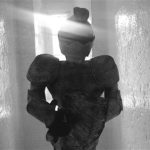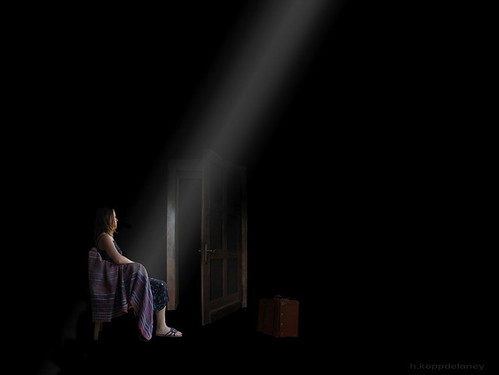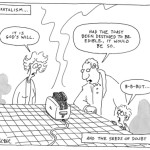We run our website the way we wished the whole internet worked: we provide high quality original content with no ads. We are funded solely by your direct support. Please consider supporting this project.
Faith, Doubt and Agnosticism
Hartwig HKD via Compfight
Greg was recently interviewed by Premier Radio in the UK for the program Unbelievable? along with Andrew Whyte (an agnostic) on the topic of faith and doubt. They discuss their personal journeys of doubt and how this led them on vastly different paths. You can find the interview by clicking here. You can get a feel for Greg’s process of coming to question the prevailing notion of faith from the quote below taken from his book Benefit of the Doubt.
As I studied issues surrounding Scripture, however, I occasionally encountered data that seemed to undermine the historical veracity of certain narratives. When this happened, I would feel pressured by my belief in inspiration to spin the data in a way that would instead support the narrative’s historical accuracy. While I was aware that evangelical and non-evangelical scholars frequently do this, it felt disingenuous to me. Is this really what God would want me to do, I wondered?
Over the years, I have increasingly felt there is something amiss with a concept of faith that inclines me to be anything but totally honest with whatever my research uncovers. At the same time, I have gradually seen less and less reason why my belief in inspiration should require that every story conforms to our modern concept of historical veracity, and even less reason why my life-giving relationship with Christ, which has come to form the very core of my being, should be affected by how I evaluate the evidence for any particular biblical story.2 There is, I concluded, something fundamentally wrong with this “house-of-cards” model of faith, as I shall call it.
Category: General
Tags: Agnosticism, Benefit of the Doubt, Doubt, Faith
Related Reading

Hearing and Responding to God: Part 6
Greg has a couple additional thoughts about this topic so here’s part 6 and we’ll post part 7 tomorrow. Today, Greg discusses a way for us to discern the will of God. You can view the previous videos here, here, here, here, and here. Good stuff!

Making Room for Doubt and Questions in Our Youth Curriculum
This article from a Christianity Today blog was sent to us from a reader (Thanks Laura!) reflecting on the need for making space for doubt and questions in our youth curriculum. From the article: In our Sticky Faith research, geared to help young people develop a Christian faith that lasts, a common narrative emerged: When young people asked…

Why Bart Ehrman Doesn’t Have to Ruin Your Christmas (Or Your Faith) Part 8
This is the eighth of several videos Greg put together to refute Bart Ehrman’s claims published in the article What Do We Really Know About Jesus? In this segment, Greg gets into the nitty gritty of why portions of the birth account are not the dumbest lie ever. If you missed the first seven installments you can…

What Type of Faith Do You Have?
Genesis 32 tells the story of Jacob, wrestling through the night with a nameless man, revealed to be none other than God Himself. We read that when this man “saw that he could not overpower” Jacob, he “touched the socket of Jacob’s hip so that his hip was wrenched as he wrestled with the man”…

Put on the Armor of God
The whole of the Christian life is an act of war against the enemy as we follow Jesus in storming the gates of hell (See post.) No passage better illustrates this than Paul’s metaphor of spiritual armor from Ephesians 6. He writes that Christians are to “be strong in the Lord and in the strength…


